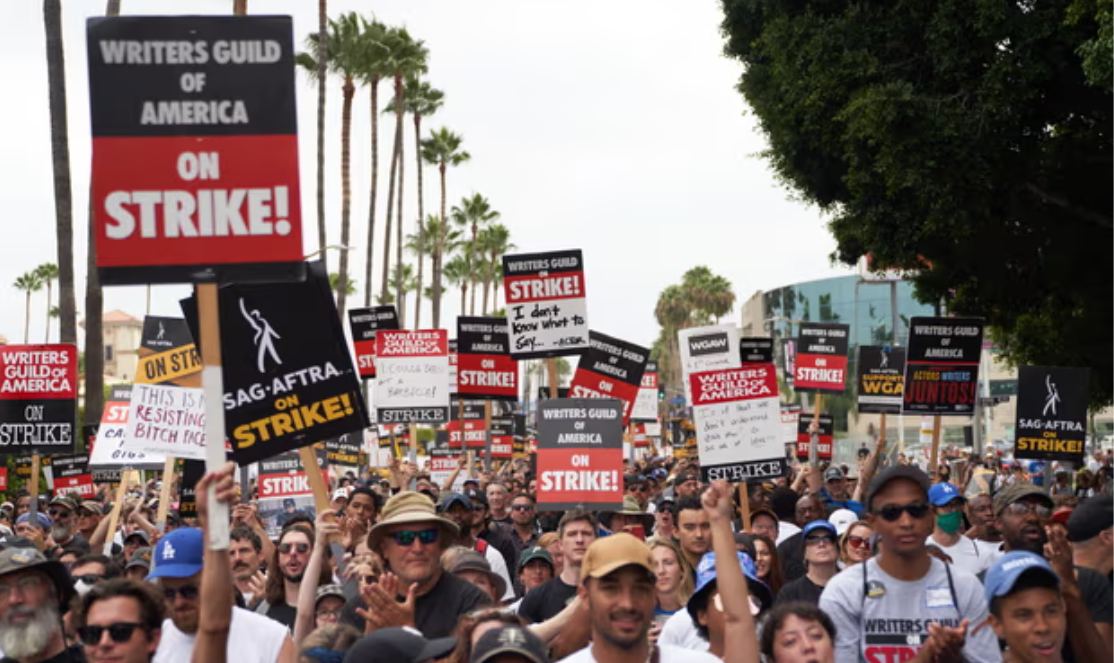Behind the most popular TV shows, award-winning movies and internationally broadcasted news reports are the writers responsible for the production of the content. Although the work of these writers is often overlooked, their dedication must not be undermined; however, this is unfortunately not the case as of late. Beginning on May 2, 2023 at 12:01am, The Writer’s Guild of America (WGA) composed of 11,500 screenwriters went on strike in correspondence with the labor dispute with the Alliance of Motion Picture and Television across New York City, Los Angeles, Burbank and Culver City.
The Board of Directors for the WGA primarily blames the causes of the strike to revolve around the issues of the “hiring of Guild members without becoming a signatory company, refusal to bargain with the WGA, refusal to participate in grievance and arbitration procedures, failure to comply with a final arbitration award, failure to pay P&H fund delinquencies, and violation of the National Labor Relations Act or other laws designed to protect writers”, according to Writer’s Guild of America West.
In a broad summary, the strike opposes current pay (since screen pay has decreased by 14% in the last five years according to the WGA), job security and regulation of the use of artificial intelligence for WGA members. On July 14, 160,000 members of the Screen Actors Guild and American Federation of Television and Radio Artists (SAG-AFTRA) joined the strike. Subsequently, Jimmy Fallon, Jimmy Kimmel and Stephen Colbert’s talk shows alongside Saturday Night Live, The Daily Show, Last Week Tonight with John Oliver, Real Time with Bill Maher, Late Night with Seth Meyers and NBC’s Tonight have entirely shut down production.
Around the end of August, major studios proposed the first counteroffer to WGA members that would include protection against certain AI-related productions, a guarantee of 10 weeks of work for development room writers and two writers per production, and newly implemented training structures for writers to become future showrunners. Strikers persisted that this is solely an attempt to get WGA members to turn on one another and still failed to protect writers from the exponential issues they have since gone on strike to oppose. The AMPTP admitted that they planned to let the strike continue until strikers run out of money and are forced to return to their jobs, fueling the controversy around the unjust attitudes projected on writers. The strike persisted for 146 days, nearly five months, becoming one of Hollywood’s longest labor disputes in history.
On September 25, a tentative agreement was finally reached after five consecutive days of negotiations. A group of 11,000 WGA members voted on behalf of the agreement, making wages more dependent on writer’s groups and projects, larger payouts of streaming residuals and secured protection against the use of AI. After a near five months of rebellion, writers have to studios immediately with the intent for projects to resume production.















